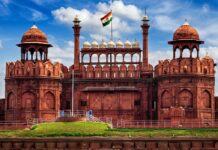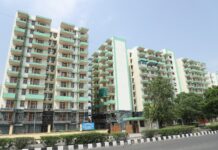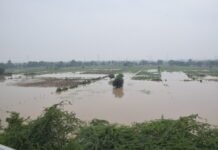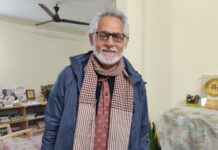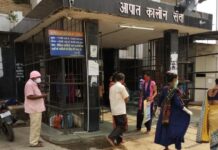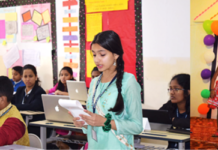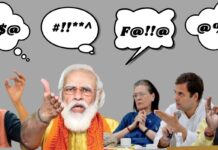[vc_row][vc_column][vc_column_text]
When the Madras High Court suggested that election officials could be booked under murder charges for not taking enough precautions against coronavirus during the just concluded Assembly polls, the Election Commission of India (ECI) had no defence whatsoever. Being an autonomous body, it could not have blamed the Centre either for its own omissions and commissions as the court’s damning indictment of the commission was not without reason.
The very fact that the Assembly elections in five states and a Union territory were allowed at a time when the second wave of Covid19 was peaking causing death and mayhem across the country puts a big question mark on the functioning of the poll panel. The questions uppermost in many minds are:
Was it not prudent on the part of the ECI to defer the elections to save precious human lives?
What was the need to conduct polls when people were getting infected with the deadly virus in lakhs and dying in thousands?
If this is not a health emergency, what is?
The ECI is well within its right to postpone elections if it so warrants. Article 324 in the Constitution of India 1949 vests “superintendence, direction and control of elections” in the election commission. Under Section 153 of the Representation of the People Act, 1951 and Article 324 of the Indian Constitution, the ECI can extend the time for completing an election provided it does not stretch beyond six months. However, in case of a state of emergency, an election can be postponed for one year and it can extend to a period of six months after the Emergency is lifted.
By February, when the election schedule was announced, the cases of coronavirus were on the upswing across the country even as scientists. A warning was issued by a forum of scientific advisers formed by the government in early March about the emergence of
a more contagious variant of the coronavirus in the country. Speaking to the Reuters, four of the scientists said despite the warning the Central government failed to impose major restrictions to prevent the spread of the virus.
Even if the elections were held, was it not the duty of the commission to strictly enforce Covid protocol to avoid the human tragedy?
When campaigning for the Assembly polls set off on March 27, two deaths were reported from West Bengal from 6.43 per cent of the people tested positive for the virus. The figures rose dramatically ever since and on April 29, when the state was gearing for the final phase, the death toll was 22 from 77 7.56 per cent positive cases.
Assam reported no death on March 27 though with 3.03 per cent cases when the campaigning set off. But on April 1, there two deaths were recorded from 3.01 per cent cases. This figure rose to 22 deaths from 2.91 per cent cases on April 29.
Kerala which reported 14 deaths from 8.48 per cent cases on 6 April ended up with 41 deaths from 9.65 per cent positive cases April 29. Similarly, Tamil Nadu, which saw 15 deaths from 4.51 per cent Covid cases on 6 April recorded 98 deaths 5.05 per cent cases on 29 April.
Given the alarming situation in the country, any poll body would have taken into consideration the feasibility of safe conduct of the polls before going ahead with the schedule. But the ECI threw all caution to the wind and went ahead with the poll dates.
What was the urgency to announce the polls in such haste? The question being raised from various platforms is on whose behalf the Elect+ion Commission was acting while notifying the poll dates for West Bengal, Assam, Tamil Nadu, Kerala and Puducherry. Had the commission acted as an independent arbiter, it would not have taken such a drastic step placing hundreds of thousands lives at grave risk.
Were the elections more important than human lives? Even if the elections were to be conducted, why Covid19 protocol was not followed during election rallies in which Prime Minister Narendra Modi, Union Home Minister Amit Shah and Cabinet Ministers and state chief ministers among others were actively involved.
Neither political leaders or their star campaigners, nor the audience was seen wearing face masks during the election rallies. Rally after rally flouted the Covid norms, mandatory for public meetings, with impunity. With the venues for the rallies packed to their capacities, there was no question of observing social distancing at the rallies. Organisers of the public meetings backed out on the question of providing sanitisers to the participants. No wonder there was an unprecedented rise in the corona cases soon after the elections.
On the assurance given by the counsel for the ECI that all necessary steps were underway, the court was sounded prophetic in its retort saying by allowing the political parties to take out rallies and meetings, it had paved the way for the resurgence of the second wave of Covid-19.
The election commission, whose duty it was to ensure the safety and security of the people in the poll-bond states, remained a mute spectator to all the goings-on during the elections. Never once it tried to raise red flag or tick off any party violating the covid norms using its discretionary powers. It could not have behaved so irresponsibly unless it was working under pressure.
If this was not the case, what could have stopped the ECI from taking a suo motu cognizance of the misdemeanour of the ruling party in deploying 42 Central government officials to monitor the election campaign of the BJP where it had a direct contest with Mamta Banerjee’s Trinamool Congress (TMC). The fact that no objection was raised against this violation reflects ECI’s softness towards the ruling party.
It may be recalled here that the same Election Commission had cancelled the election of late Prime Minister Indira Gandhi on June 12, 1975 citing a single government official who worked for her. She had contested the election from Rae Bareilly in Uttar Pradesh where the media had noticed a PMO official and had raised objection to it.
In addition, a record number of ten thousand BJP activists along with RSS cadres were planted in West Bengal to make the ground for the BJP. It’s another matter that despite its all-out efforts including deployment of Central forces and bureaucracy, the party could be able to bag a measly 77 seats from 294. It could be able to retain power in Assam and Puducherry by the skin of its teeth while losing the remaining four states.
There is no denying the fact that the ruling party has placed its own political interests ahead of the nation. This is not to say that the TMC and the other players in the poll fray were not involved in flouting the norms in the no-holds barred race for power. But the onus for the fiasco lies on ruling party at the Centre whose job it is to ensure safe conduct of the elections.
It is to be noted here that the BJP started its election rallies in March. In April, the Prime Minister and the Home Minister together addressed as many as 50 rallies, road shows and other meetings. On April 2, the day Prime Minister Modi held his first rally 714 people died of corona while his second on April 3 saw 513 deaths. On his third public rally on April 6, 630 deaths were reported. His last rally was held on April 17 when the death toll reached to 1,600.
The virtual rally the PM held on April 23 from Delhi too was attended by thousands of people at 200 LEDs installed at different in West Bengal.
Among those affected by the viral infection are many government officials and employees deployed on election duty too were infected from the coronavirus. Some of them lost their lives. In Uttar Pradesh 700 teachers including a pregnant woman deputed on election duty for panchayat polls died of corona.
According to a report by the Union Health Ministry, the total number of registered Covid cases in the country is 1.99 crore. Of them, 34,13642 are still under treatment while others have been discharged. A total of 2,18, 959 persons have died of corona so far.
What is intriguing in the whole episode is the cavalier attitude of the government. Even as thousands are dying and lakhs of families are affected by Neither the Prime Minister nor the Home Minister issued a single statement condoling the deaths or consoling those who have lost their loves ones. This reflects on their lack of concern for the sufferings of common man.
Leave alone the ruling party, no Opposition party except the Congress censured the election commission for holding the assembly elections when the Covid cases at the peak. While Rahul Gandhi and Priyanka Gandhi Vadra held the government squarely responsible for the surge in second wave of pandemic, the rest of the Opposition leaders maintained a studied silence. This shows that the political parties treat the people no more than vote banks.
During the first lockdown last year, the government had clamped blanket ban on social, economic and religious activities even though the coronavirus cases were well under control. This time around, despite the astronomical rise in the Covid cases, the political establishment did not reacted with the same alacrity.
The contradiction in the government’s functioning is glaring. Such half-baked measures to deal with a national calamity show that our political establishment has no value for human life.
[/vc_column_text][/vc_column][/vc_row]
Disclaimer: We do undertake rigorous checks on content provided by contributors before publishing the same. If you come across some factual errors, kindly bring this into our notice and we shall review your objection and claim as per our policy and display correction credits and corrections on the article itself.
The opinion expressed in the article is of the writer. Writer is a freelance journalist/journalist based in Delhi

